Report of the International Conference on Intangible Cultural Heritage, Museums and Cultural Policies (7 May 2019, Mechelen, BE)
Introduction
On May 7, the fifth and final International Conference of the Intangible Cultural Heritage and Museums Project took place in Museum Hof van Busleyden (Mechelen, BE). The theme of this meeting was that of cultural policies in relation to intangible cultural heritage (ICH) and museums. Within the programme of the meeting, this was reflected in contributions by government representatives from the project’s five partner countries, a keynote by Professor Marc Jacobs, and presentations of UNESCO and the European governance level’s activities in this domain. In addition, the International Conference featured a practitioners’ panel, several museum case studies, and the presentation of a co-creation. Participants included museum and heritage professionals and practitioners, policy makers ranging from the local to the international level, and academics.
The day’s programme was introduced by Marc Jacobs (FARO) and Jorijn Neyrinck (Workshop intangible heritage Flanders), who also provided a general overview of the IMP project. The participants were then welcomed by Sergio Servellón representing ICOM Belgium Flanders. He set the tone for the day by emphasizing that the interdisciplinary presence at this International Conference would allow for cross-transfer of inspiration and mutual learning, and could inspire new, future collaborations.
The first policy perspective was provided by Yue Shen (UNESCO). She addressed a central topic of both the International Conference and the Expert Meeting (scheduled for the following day) which is the fact that many museums – even those who include intangible cultural heritage as part of their collections – are as of yet not fully equipped with skills and methods for handling the challenges posed by ICH in museum settings. UNESCO contributes to safeguarding ICH, among other methods, by means of their global capacity-building programme, which assists different stakeholders in implementing the 2003 Convention for the Safeguarding of the Intangible Cultural Heritage.
Practitioners' panel
Floortje Vantomme (Workshop intangible heritage Flanders / Werkplaats Immaterieel Erfgoed) subsequently chaired a panel of practitioners in intangible cultural heritage, coming from Flanders and Brussels. The five participants in this panel illustrated the rich variety in intangible cultural heritage domains and practices in Flanders, and recounted their experiences and challenges faced with cultural policies and their particular area of ICH. Luc Rombouts presented Flemish carillon culture by means of his own extensive experience in this field, including both carillon practice and academic research on this subject. Michel Mouton talked about his passion to transmit the traditional craft of forging to new generations. Mieke Meskens and Gustaaf Soli presented their project Theater De Moedertaal, a theatre collective dating back to 1874 that has a strong presence in its hometown of Mechelen through producing plays in a wide range of theatre genres. Myriam Stoffen talked about the Zinneke Parade and organization, which has become an urban tradition in Brussels since Brussels was European Capital of Culture in the year 2000 and establishes socio-artistic co-creations and collaborations between a wide diversity of residents, communities, artists, schools and urban actors in Brussels and around.
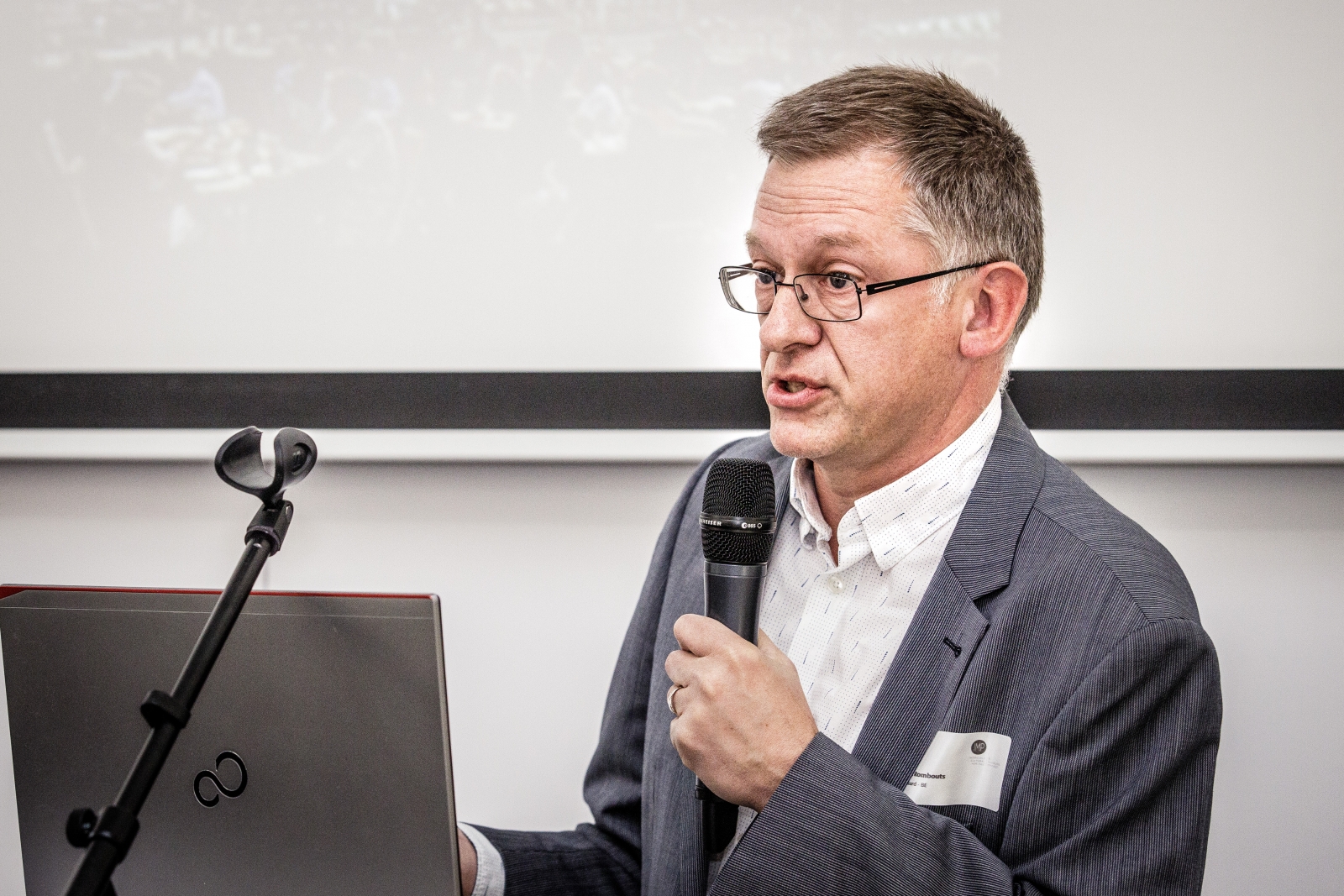
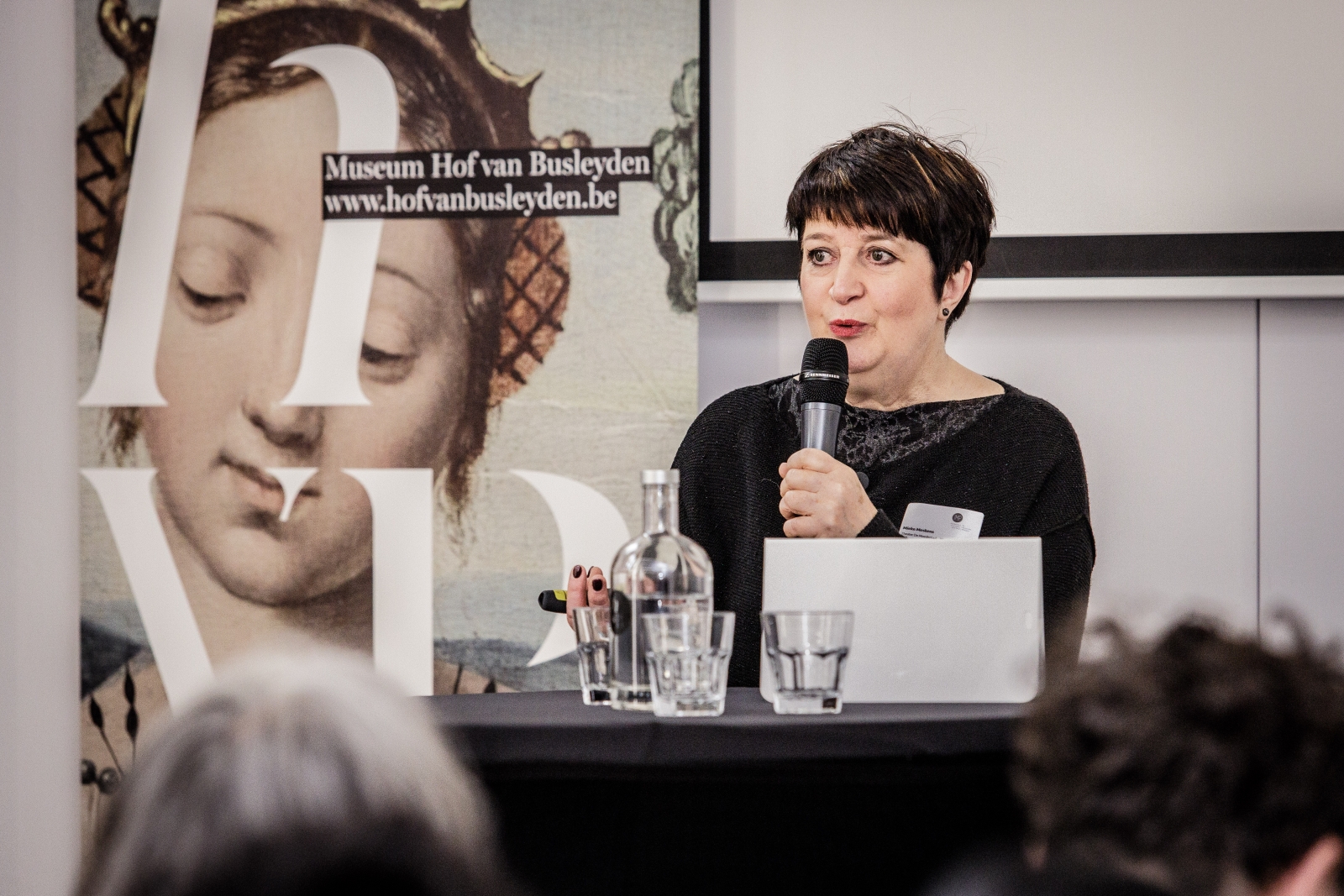
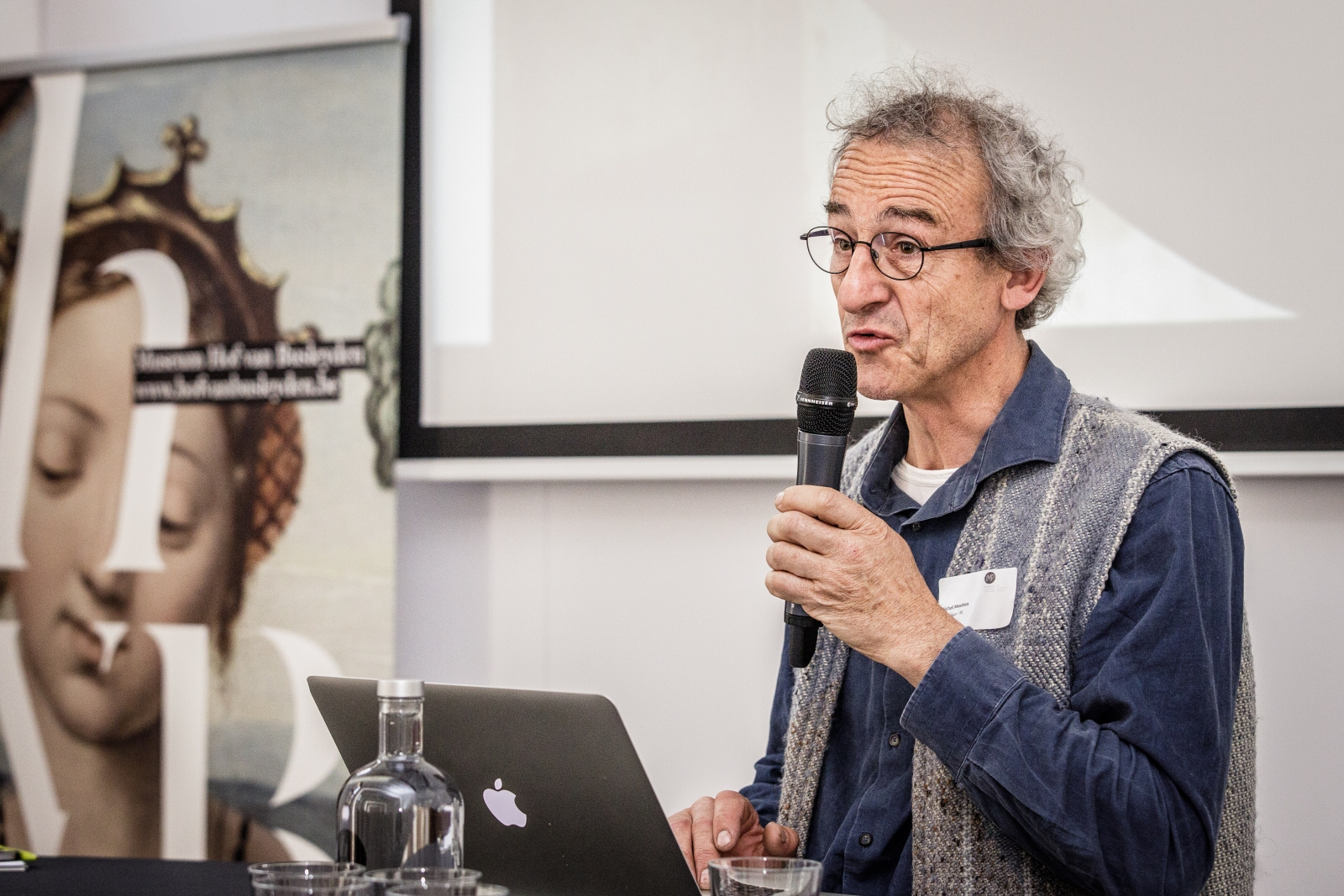
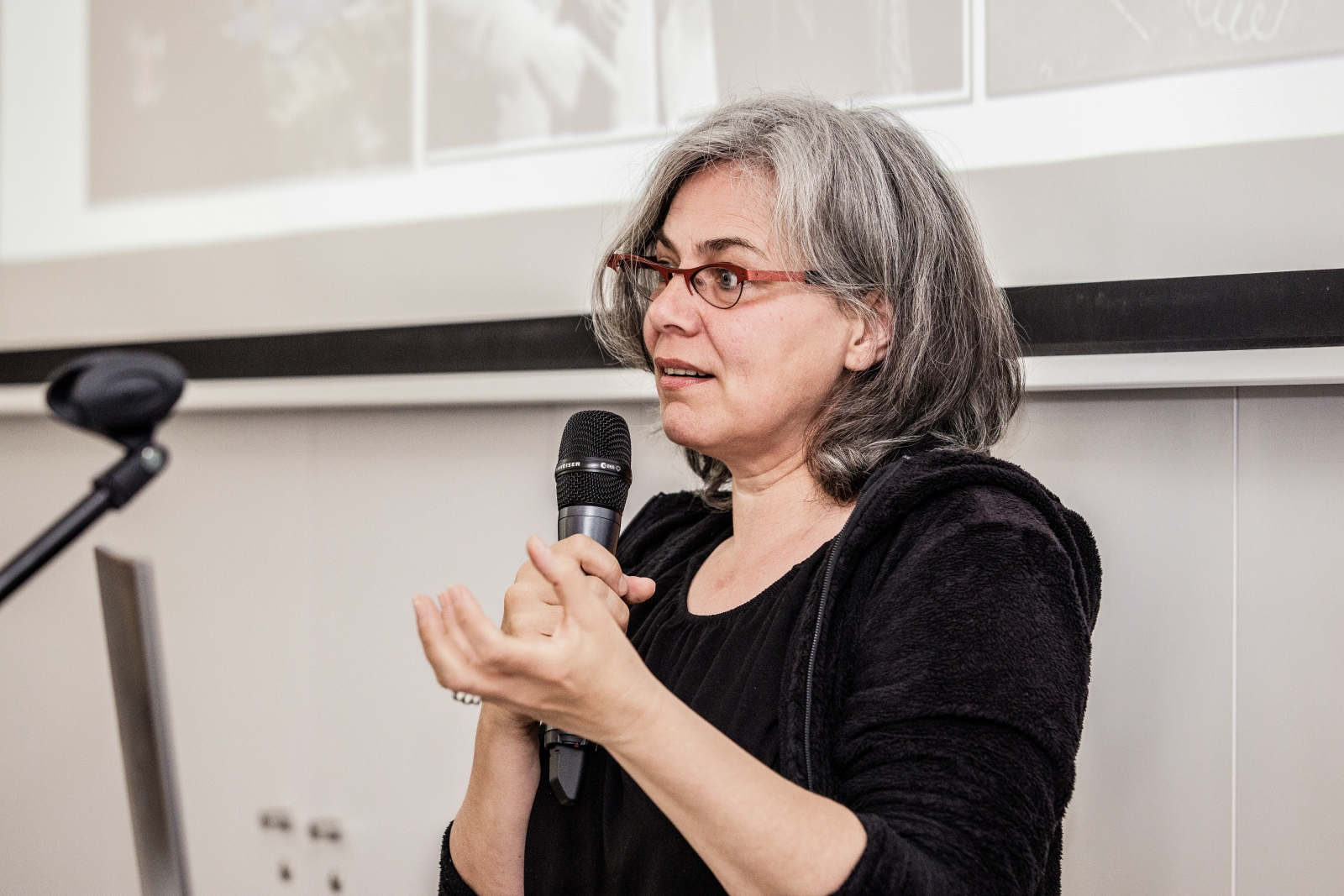
Photos by Sophie Nuytten
Video Mieke Meskens & Gustaaf Soli
Keynote presentation
The conference keynote was held by Marc Jacobs, entitled “Subsidiarity, policy-making and trans-boundaries networking.” Jacobs’ contribution discussed the tension that often occurs in approaching and trying to safeguard ICH on different policy levels. Higher decision levels such (e.g. European governance levels, UNESCO, …) sometimes run the risk of losing touch with actual heritage practitioners and communities. Possible approaches to remedy this include revaluing “community, groups and individuals” (actors mentioned in the UNESCO 2003 Convention) as important stakeholders, and establishing museums as contact zones where different actors can meet and negotiate ICH in its complex social settings.
The European governance level
Markus Prutsch (European Parliament) subsequently gave a presentation on the European governance level and its approach and contributions in relation to intangible cultural heritage and museums. Prutsch addressed the tension present with varying degrees in approaches between Member States and the European level, as to:
- where the emphasis of actions on ICH should be,
- and the extent to which the European Union should interfere in more nationalized and regionalized initiatives.
Cultural heritage is regarded by the European governance level as an important factor in cultural identity and European integration, and several initiatives and policy programmes support this goal. Nevertheless, ICH in particular seems to receive relatively little attention compared to tangible cultural heritage, especially immovable, and natural heritage. As a consequence, there is certainly room for much progress, both in valuing ICH, and in increasing ownership of, and involvement of citizens and local organizations.
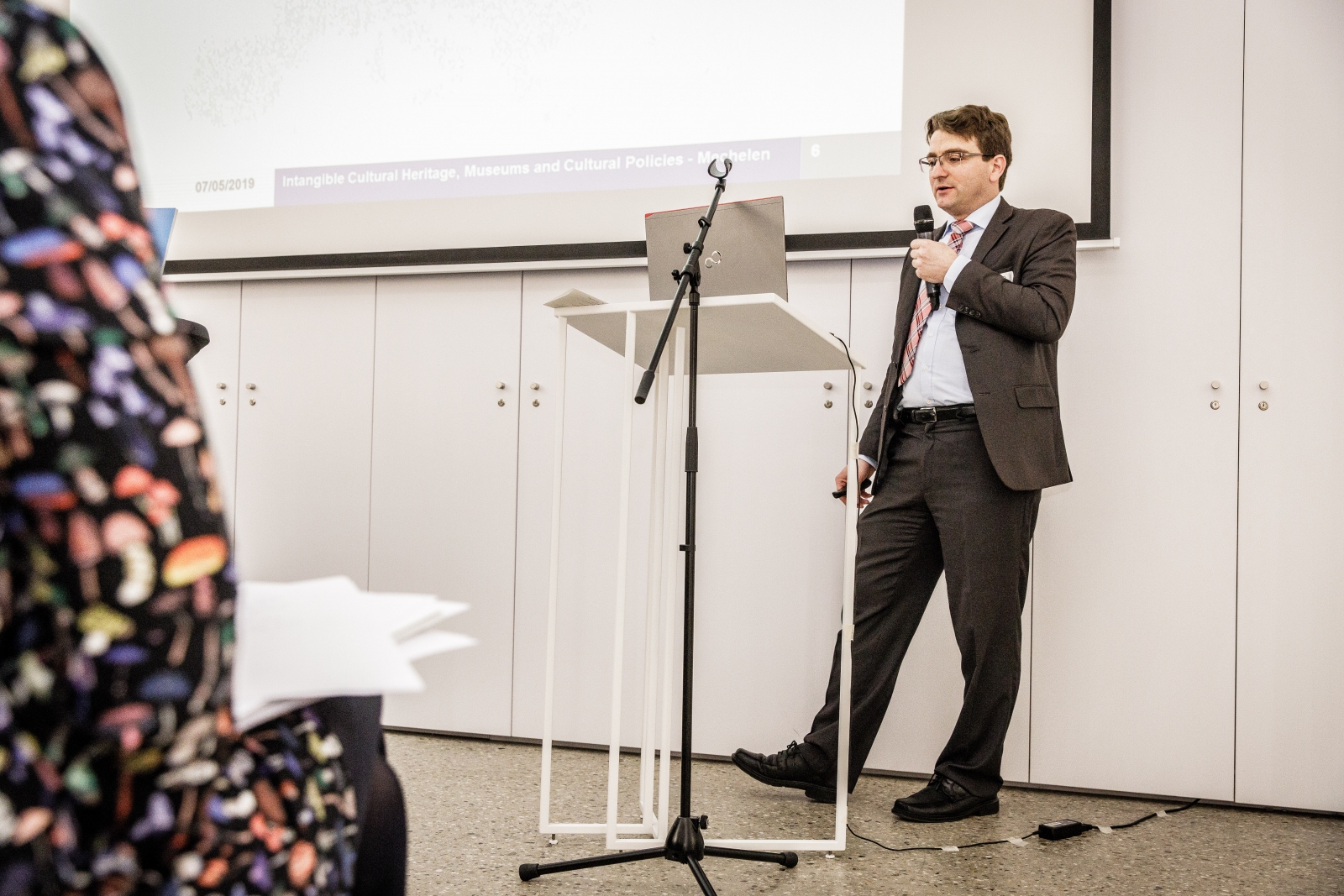
Case studies in museums and ICH
The International Conference also featured three case studies on museum practices in Belgium, Switzerland and Italy, on the integration of ICH in museum settings.
- Museum Hof van Busleyden, also the venue of both the International Conference and Expert Meeting, was presented by Sigrid Bosmans. The building housing the museum was constructed in the early 16th century as a grand townhouse (NL: stadspaleis; FR: hôtel particulier), and was opened recently in 2018 as the new city museum of Mechelen. It reflects upon the history of the city, but also includes current living heritage and culture in Mechelen. Sigrid strongly emphasized the policy of the museum to include also ICH throughout all dimensions of its museum strategy. To this end, the museum engages also in participatory and co-creative working processes. Specifically in the museum presentation an effort was made also for setting up participatory spaces where local organizations, such as a lace bobbin society, can present themselves through involvement of local heritage practitioners – both individuals and communities.
- Next, Régis Huguenin presented the Musée international d’horlogerie in La-Chaux-de-Fonds, Switzerland. With the subtitle Man and Time, the museum presents a rich tradition of watchmaking expertise, which has been booming again over the last 20 years. The museum holds a collection and documentation centre, organizes temporary exhibitions, includes practitioners in demonstrations, workshops, etc., and is also active on a policy level, by applying for UNESCO recognition of watchmaking as intangible heritage. In the middle of the permanent exhibition, the Antique Timepiece Restoration Centre allows visitors to see experts at work.
- Finally, Claudia Marchesoni talked about the Bersntoler Kulturinstitut/Istituto Culturale Mòcheno in Northern Italy. This ethnographic museum features the historical language bersntolerisch, which is considered intangible cultural heritage, but is under threat of going extinct. It is currently only spoken by around 1000 people. Through training young people as museum guides, and by including speakers of the language in the operations of the institute, the bersntolerisch language will hopefully be handed down to future generations. The institute also develops educational materials, and raises awareness on what it means to be part of a minority, and to speak a threatened language.
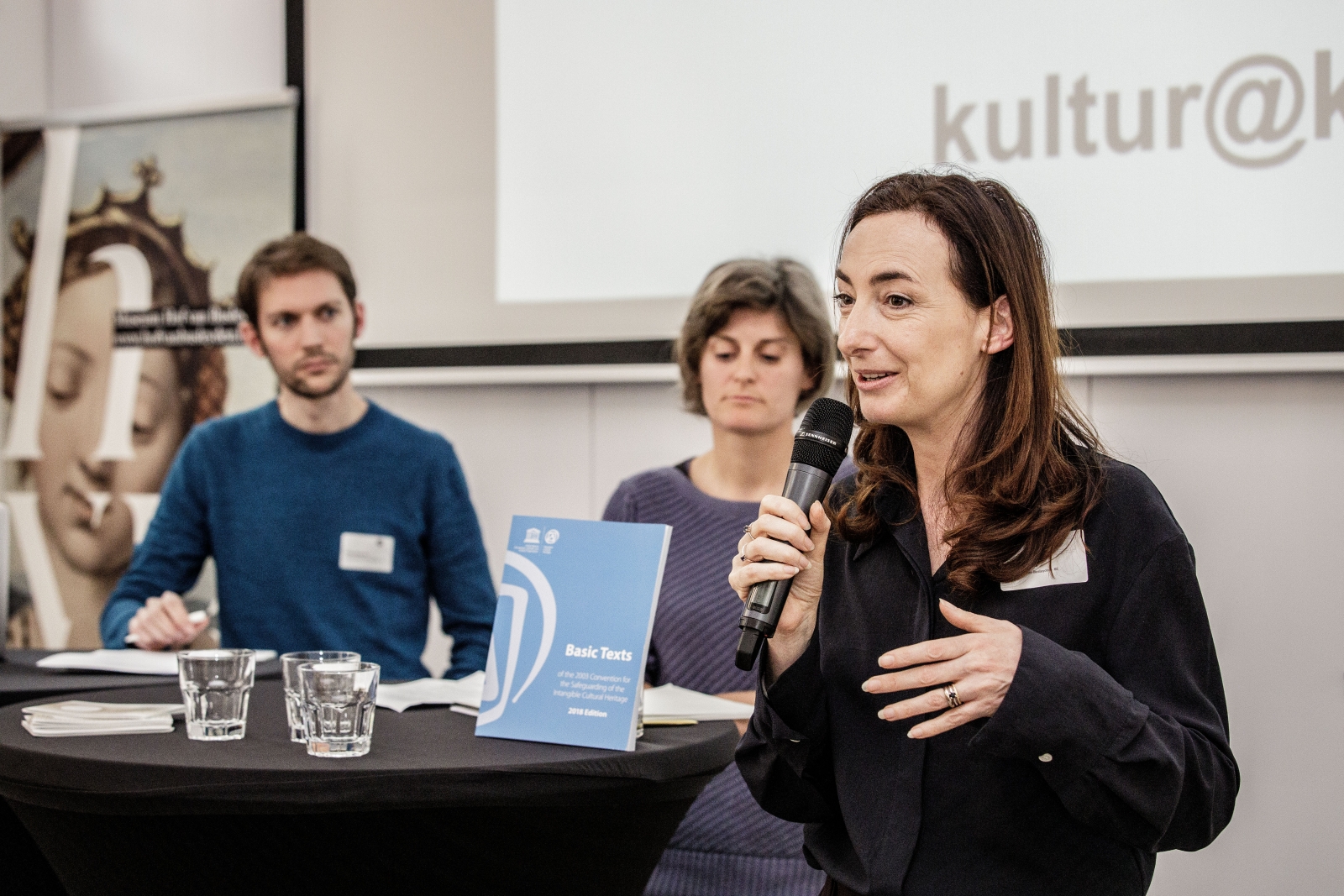
Policy perspectives: a comparison between IMP's partner countries
As part of the Conference theme of cultural policies, government representatives from the five project partner countries each presented the policy views and implementation strategies on ICH in their respective countries, and took part in a panel discussion. The panel consisted of Sara Knijff (Deputy Director of the Heritage and Arts section at the Dutch Ministry of Education, Culture and Science, the Netherlands), Isabelle Chave (Deputy Head of the Department of Research and Scientific Policy, Directorate-General of Heritage of the Ministry of Culture, France), Leandro Ventura (Director of the Istituto Centrale per la Demo-etno-antropologia, Italian Ministry of Cultural Heritage, Italy), David Vitali (Head of the Section Culture and Society of the Swiss Federal Office of Culture, Switzerland), and Luc Delrue (Secretary General of the Department of Culture, Youth and Media of the Flemish Government, Belgium). The presentations illustrated that diverse models and methods are employed for implementing policies around ICH, and in particular with regards to the crossroads with museum policies. These vary from centrally directed, national policies (France, Italy, Netherlands), to more federalised or regional models displaying differential approaches within countries (Belgium, Switzerland), with many policy approaches in between. While much work has already been done in these and other countries, partially supported by projects such as IMP, a lot of open spaces still allow for the expansion and improvement of both policies and practice in the future.
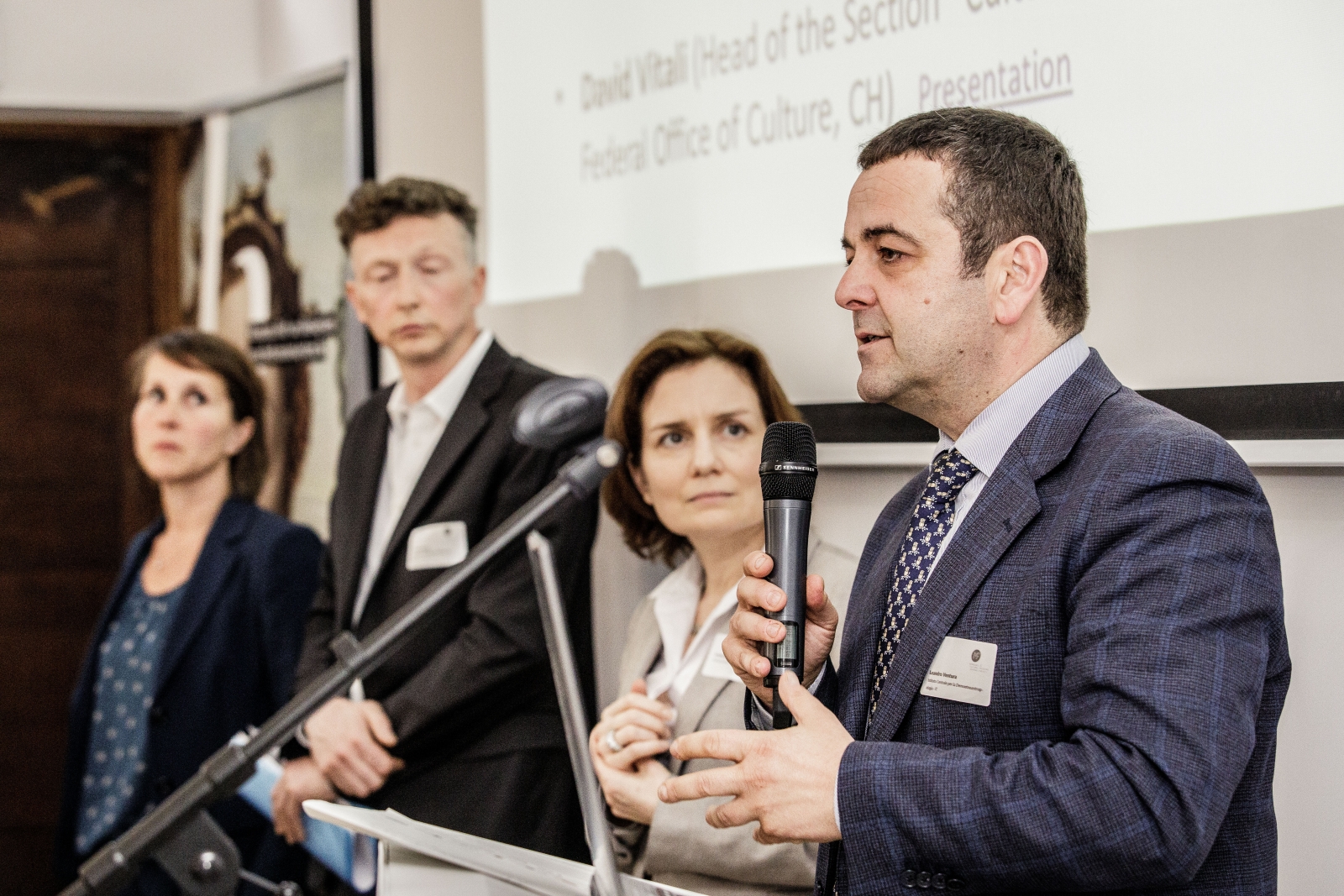
Co-creation
Next, a co-creation was presented, between the artistic collective WORD WA(a)R and the Africamuseum, titled ‘King Filip vs. Leopold II’.
Through the format of a word battle – in itself a vibrant contemporary living tradition – this co-creation addressed the tension and controversies related to the Belgian history of colonialism in the Democratic Republic of Congo, by performing a word battle of an imagined conversation between the current King Filip and the historic, colonialist King Leopold II. The co-creation illustrated how socio-artistic collaborations can be a creative space for discussing complex and sometimes tense subjects related to heritage, history and society, and how a collaboration between the WORD WA(a)R-performers and the museum took shape.
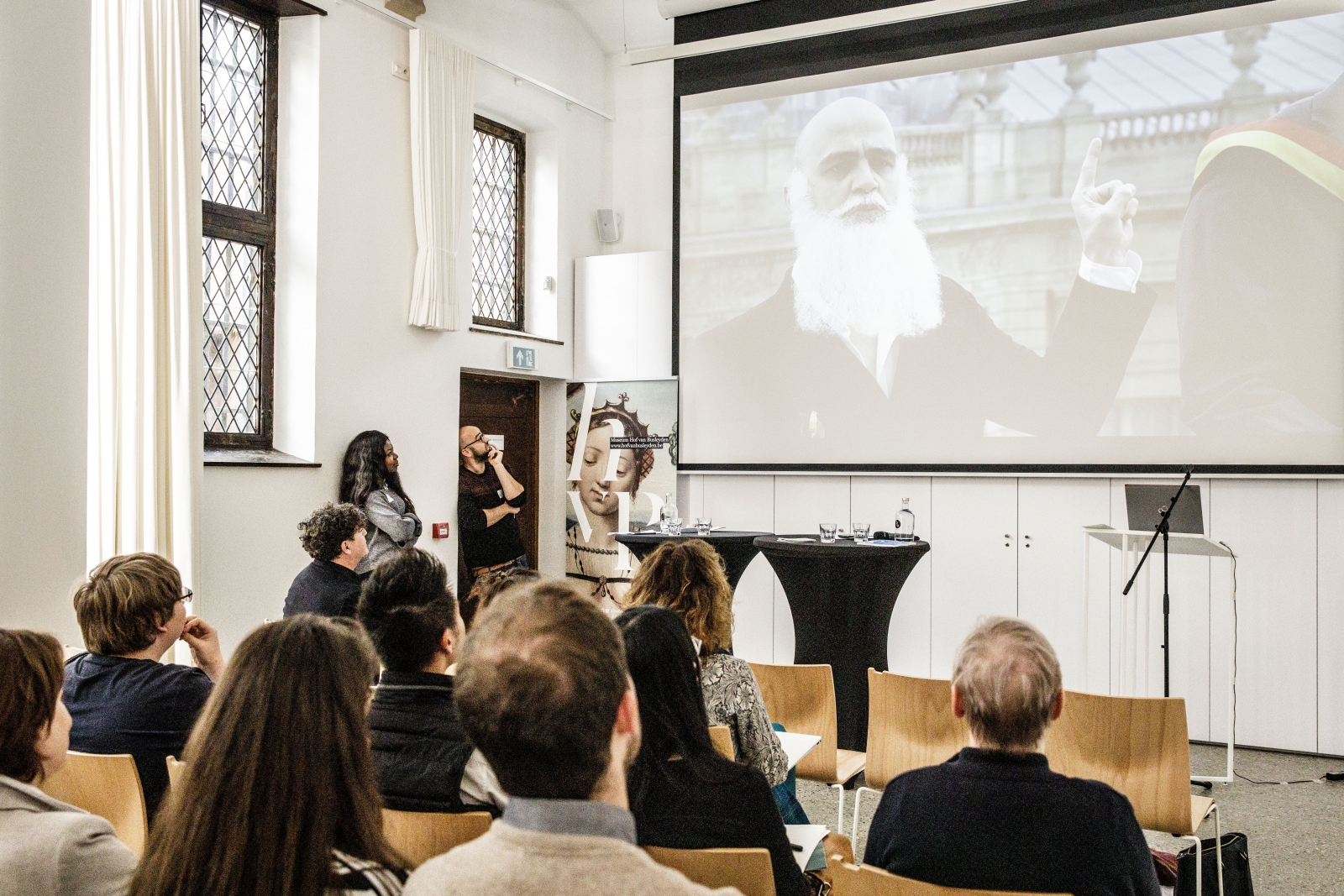
Concluding remarks
The day concluded with reflections by Kristin Kuutma (University of Tartu). She pointed out and questioned at the same time how we often talk about ICH as if this concept is clearly defined and as if we all agree on its content. From her point of view, ICH revolves around human communication, and the sharing of ideas and experiences. In addition, intangible cultural heritage is not necessarily a separate category, since tangible and even natural heritage only make sense if intangible aspects are being integrated. Kristin Kuutma encouraged conference participants to broaden their perspectives and think about the future. Museums can be agents of transformation, by eliciting debate and empowering visitors, but also by making difficulties and struggles visible. They should be aware that objects in themselves do not tell stories – narratives and people do. Modern museums should acknowledge all of this, in order to enlarge their potential for changing both society and the course of history.
Kristin Kuutma's conclusions also formed the transition to additional, in depth discussion on ICH, museums and cultural policies during the Expert Meeting on 8 May.
.jpg)
.jpg)